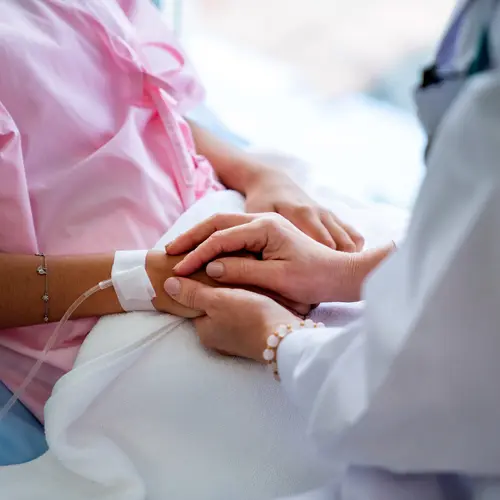When your child has cancer, you will have a whole team of doctors and other experts to help your family. Each member plays a specific and important role in your child’s care.
You may meet some of them often and others for shorter periods of time. Some specialists may work with your child even after treatment ends.
Cancer Doctors
Doctors who treat childhood cancers often specialize in a certain area. Your team may include:
Pediatric oncologist. "Pediatric" means dealing with children. An oncologist is a cancer doctor. They may oversee and plan all of your child’s care and coordinate with other team members. Your child could have more than one pediatric oncologist.
Pediatric hematologist. They’re specialists in blood disorders. A hematologist likely will be an important part of your child’s care team if they have leukemia or lymphoma. Your doctor may be both an oncologist and a hematologist.
Radiologist. These doctors are experts in reading imaging tests such as X-rays as well as CT, MRI, ultrasounds, or PET scans. Your care team may use these tests to diagnose your child’s cancer and to track how well treatment is working.
Radiation oncologist. They use X-rays and other beams of energy to shrink a tumor. Some radiation therapy delivers radiation from outside the body. Others put the radioactive material inside your body next to the cancer.
Pediatric surgeon. These doctors take out the cancer through surgery.
Neurosurgeon. They specialize in surgeries on the brain, spine, or other parts of the nervous system. Brain and spine tumors are the most common solid cancers in children.
Orthopedic surgeon. They operate on bones or soft tissues. Your child may see an orthopedic surgeon if they have soft tissue sarcoma.
Pathologist. These doctors often work behind the scenes. They examine your child’s tissue samples under a microscope to confirm that it is cancer and, if so, what kind.
Anesthesiologist. This doctor prepares your child for surgery by giving them medication to sleep through the operation so they won’t feel any pain.
Psychiatrist. They are mental and behavioral health specialists. Psychiatrists can prescribe medicines to help with depression, anxiety, or other effects of your child’s illness. They also may offer counseling.
Cancer Specialists
Along with doctors, your child’s care team will include many other skilled professionals.
Registered nurses. They’re essential members of your care team. You may see these professionals more than any other. Nurses will care for your child during and after treatment and explain what to expect. Some might be certified pediatric oncology nurses.
Physician assistant. These professionals are certified and licensed to work alongside your child’s doctors.
Nurse practitioner. These nurses have higher level of education than registered nurses. They may give your child tests and work closely with your child’s doctors to help plan treatments.
Social worker. They can help your whole family. They offer counseling, advice on financial issues, and help you find temporary housing, childcare, and other needs.
Rehabilitation specialist. They work with your child on a range of tasks during treatment and recovery. They include moving their bodies, eating, speech and communication issues, school learning, and more.
Child life specialist. They focus on child development. They can help your child navigate their illness and get ready for treatments using play, art, and other activities.
Clinical pharmacist. They give out medicines. Pharmacists also can help you understand how your child should take their medicines and which side effects to watch out for.
Dietitian or nutritionist. Good nutrition is important when you have cancer. These professionals can coach your child on healthy eating or any special diets your child may need to follow.
Palliative care or pain management provider. They help treat or ease your child’s symptoms, such as pain, anxiety, or trouble eating.
Pediatric psychologists. These therapists can offer counseling to help your child work through their feelings about having cancer and its effects on their health and lives.
Fertility specialist. Cancer treatment may affect your child’s ability to have children later. A fertility specialist can help you understand those risks. They can also explain any options to improve your child’s chances of becoming a parent, if they wish.
Genetic counselor. They help you understand if your child’s cancer may run in the family. This may be important if your child has siblings or if you hope to have more children.
Chaplains or spiritual care counselors. They attend to your child’s or your family’s spiritual needs. You don’t have to be religious to use their services. And chaplains can administer comfort to people who may follow Christianity, Islam, Judaism, and other faiths.
Teachers. They’re trained to work with children stay up with their school studies during treatments or stay in the hospital.
Your child’s cancer care team might also include medical students and doctors or specialists in training. Your doctors will likely introduce you to all the key members on your team early on.

